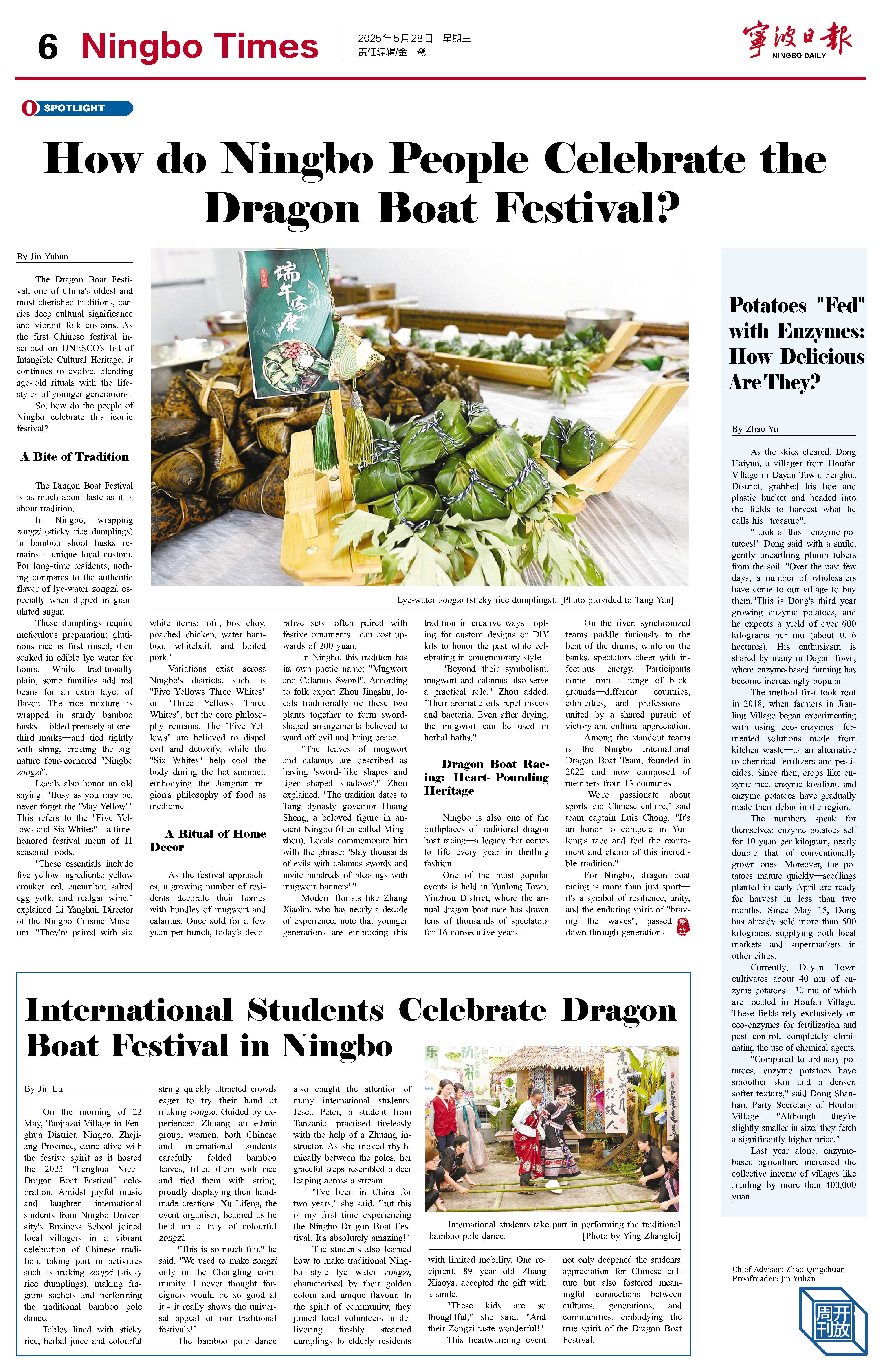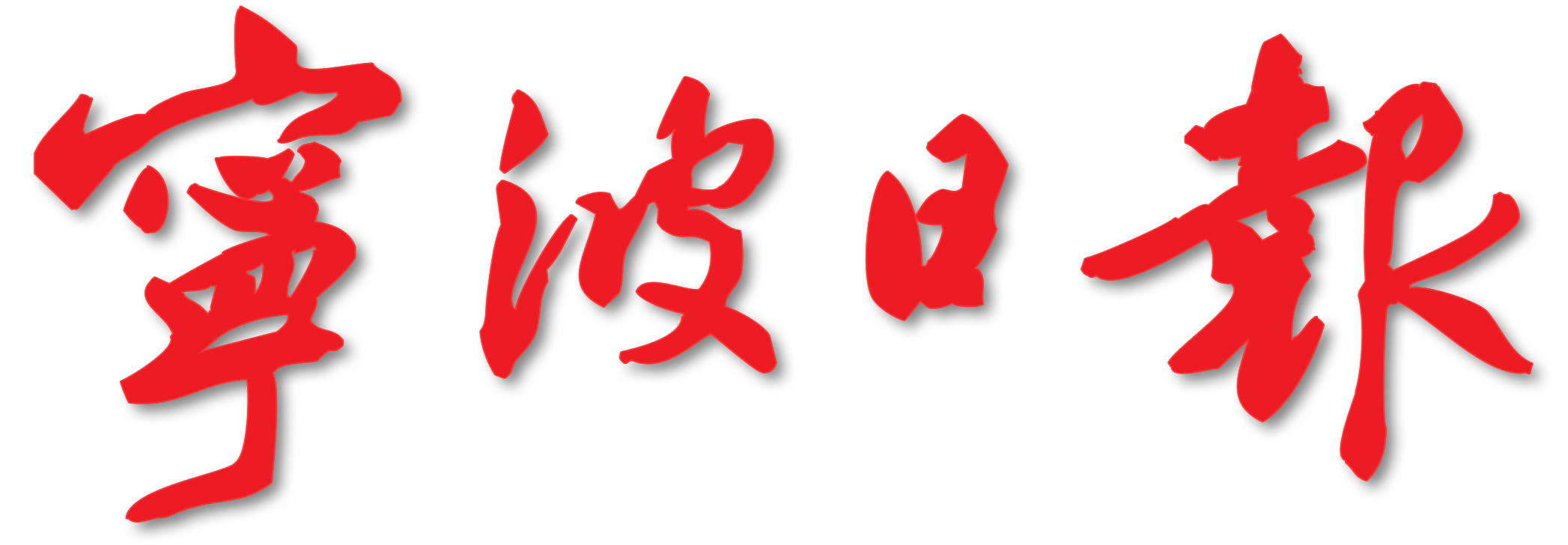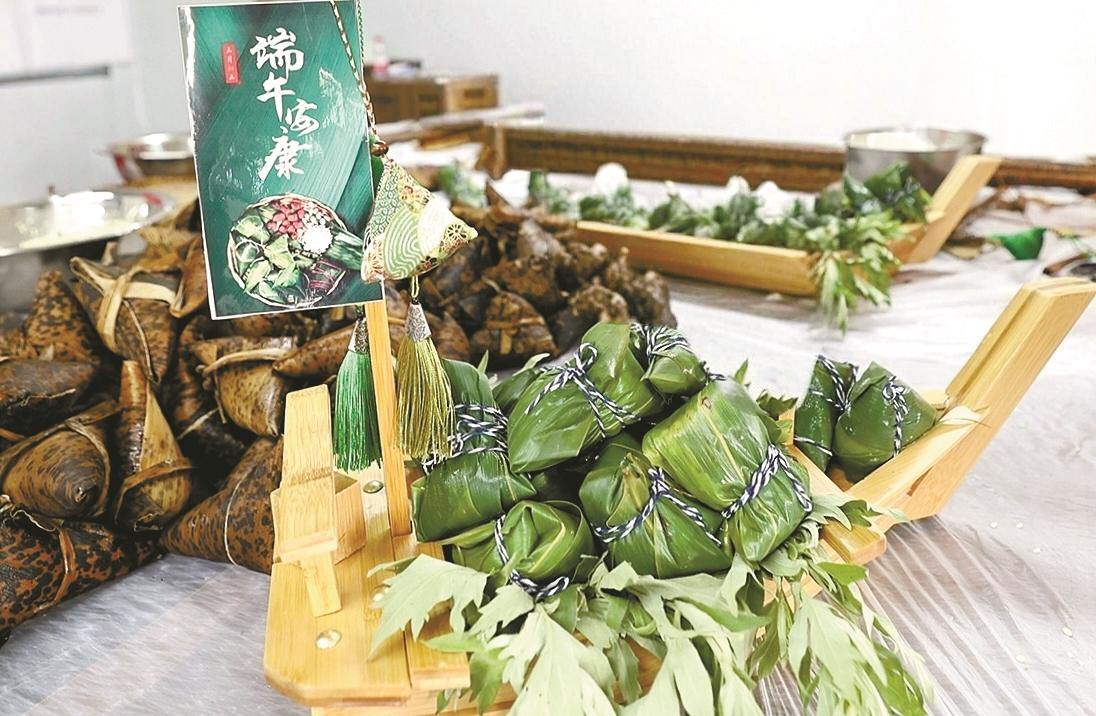By Jin Yuhan
The Dragon Boat Festival, one of China's oldest and most cherished traditions, carries deep cultural significance and vibrant folk customs. As the first Chinese festival inscribed on UNESCO's list of Intangible Cultural Heritage, it continues to evolve, blending age-old rituals with the lifestyles of younger generations.
So, how do the people of Ningbo celebrate this iconic festival?
A Bite of Tradition
The Dragon Boat Festival is as much about taste as it is about tradition.
In Ningbo, wrapping zongzi (sticky rice dumplings) in bamboo shoot husks remains a unique local custom. For long-time residents, nothing compares to the authentic flavor of lye-water zongzi, especially when dipped in granulated sugar.
These dumplings require meticulous preparation: glutinous rice is first rinsed, then soaked in edible lye water for hours. While traditionally plain, some families add red beans for an extra layer of flavor. The rice mixture is wrapped in sturdy bamboo husks—folded precisely at one-third marks—and tied tightly with string, creating the signature four-cornered "Ningbo zongzi".
Locals also honor an old saying: "Busy as you may be, never forget the 'May Yellow'." This refers to the "Five Yellows and Six Whites"—a time-honored festival menu of 11 seasonal foods.
"These essentials include five yellow ingredients: yellow croaker, eel, cucumber, salted egg yolk, and realgar wine," explained Li Yanghui, Director of the Ningbo Cuisine Museum. "They're paired with six white items: tofu, bok choy, poached chicken, water bamboo, whitebait, and boiled pork."
Variations exist across Ningbo's districts, such as "Five Yellows Three Whites" or "Three Yellows Three Whites", but the core philosophy remains. The "Five Yellows" are believed to dispel evil and detoxify, while the "Six Whites" help cool the body during the hot summer, embodying the Jiangnan region's philosophy of food as medicine.
A Ritual of Home Decor
As the festival approaches, a growing number of residents decorate their homes with bundles of mugwort and calamus. Once sold for a few yuan per bunch, today's decorative sets—often paired with festive ornaments—can cost upwards of 200 yuan.
In Ningbo, this tradition has its own poetic name: "Mugwort and Calamus Sword". According to folk expert Zhou Jingshu, locals traditionally tie these two plants together to form sword-shaped arrangements believed to ward off evil and bring peace.
"The leaves of mugwort and calamus are described as having 'sword-like shapes and tiger-shaped shadows'," Zhou explained. "The tradition dates to Tang-dynasty governor Huang Sheng, a beloved figure in ancient Ningbo (then called Mingzhou). Locals commemorate him with the phrase: 'Slay thousands of evils with calamus swords and invite hundreds of blessings with mugwort banners'."
Modern florists like Zhang Xiaolin, who has nearly a decade of experience, note that younger generations are embracing this tradition in creative ways—opting for custom designs or DIY kits to honor the past while celebrating in contemporary style.
"Beyond their symbolism, mugwort and calamus also serve a practical role," Zhou added. "Their aromatic oils repel insects and bacteria. Even after drying, the mugwort can be used in herbal baths."
Dragon Boat Racing: Heart-Pounding Heritage
Ningbo is also one of the birthplaces of traditional dragon boat racing—a legacy that comes to life every year in thrilling fashion.
One of the most popular events is held in Yunlong Town, Yinzhou District, where the annual dragon boat race has drawn tens of thousands of spectators for 16 consecutive years.
On the river, synchronized teams paddle furiously to the beat of the drums, while on the banks, spectators cheer with infectious energy. Participants come from a range of backgrounds—different countries, ethnicities, and professions—united by a shared pursuit of victory and cultural appreciation.
Among the standout teams is the Ningbo International Dragon Boat Team, founded in 2022 and now composed of members from 13 countries.
"We're passionate about sports and Chinese culture," said team captain Luis Chong. "It's an honor to compete in Yunlong's race and feel the excitement and charm of this incredible tradition."
For Ningbo, dragon boat racing is more than just sport—it's a symbol of resilience, unity, and the enduring spirit of "braving the waves", passed down through generations.



